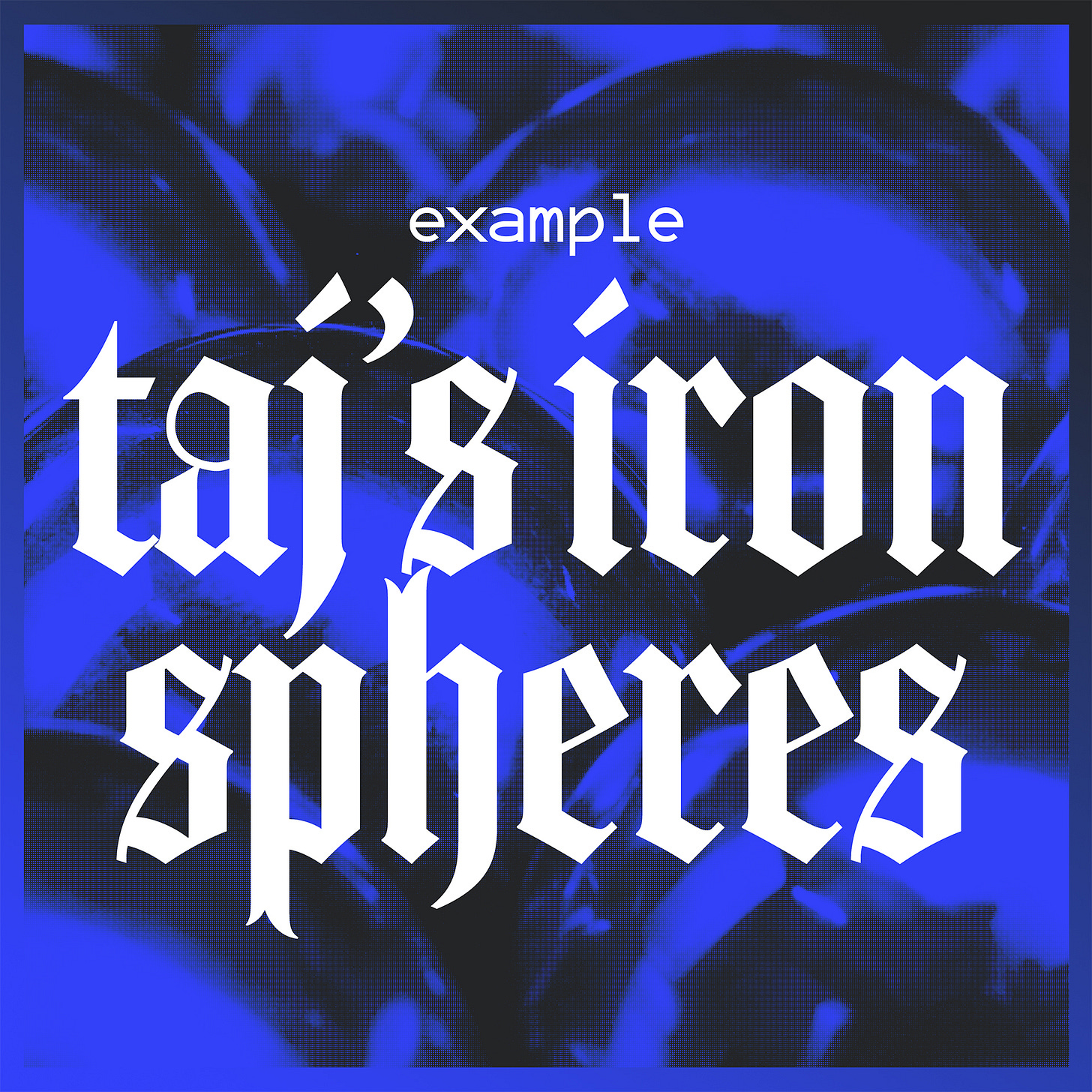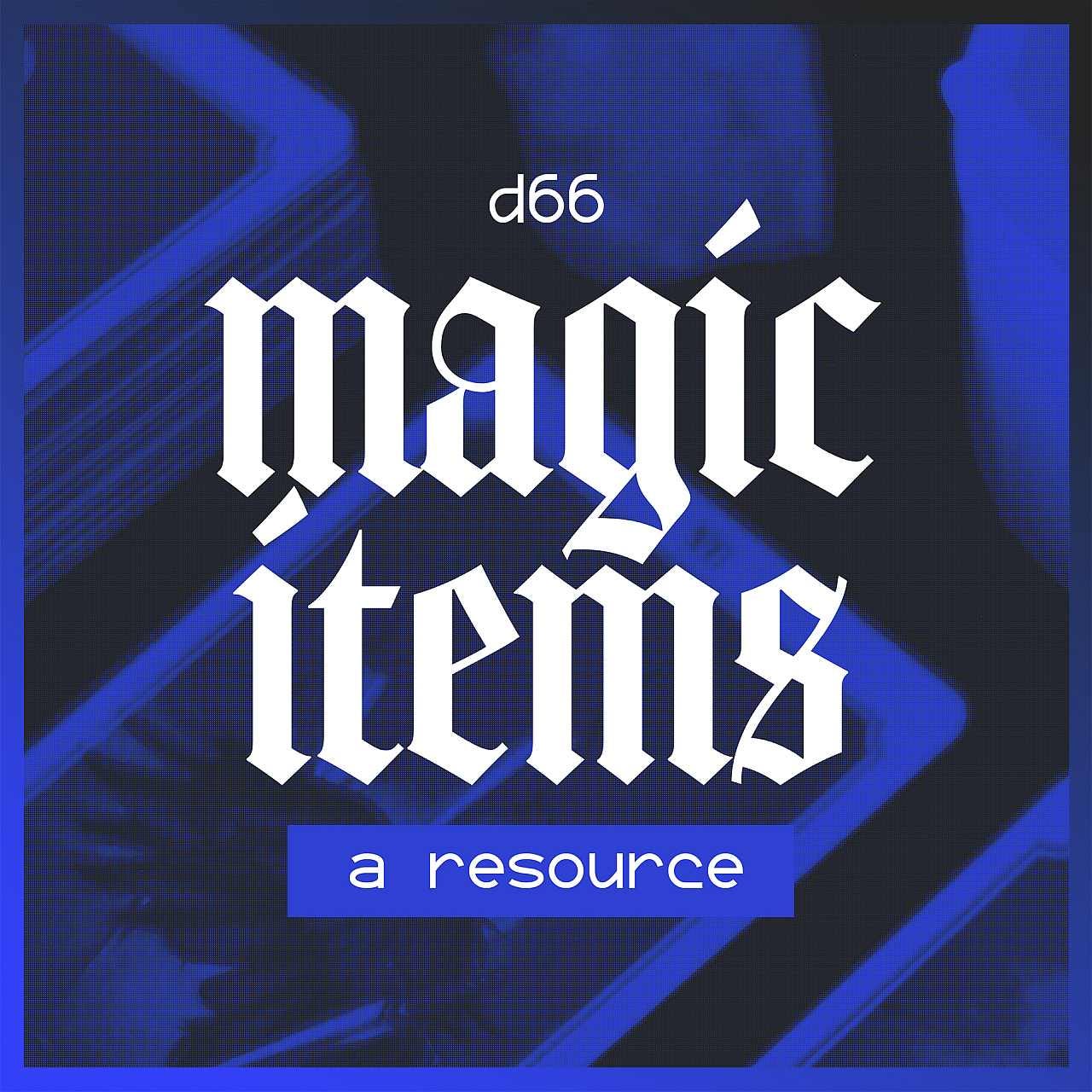Why Most Magic Items Suck
Across the various editions of DND, most of the magic items have remained the same as they were in their original conception.
Off the top of your head, you can probably name a few of them: Deck of Many Things, +1/+2/+3 Sword, Wand of Magic Missile, Blackrazor, Axe of the Dwarven Lords.
The list goes on.
The number of magic items per edition in DND is a bit of a bell curve: ODND had roughly 130 items, then it ballooned between AD&D and 4th Edition, before starting to settle around 400 in 5th Edition (not including adventures and 3rd-party supplements).
That leaves a lot of room for interesting design space.
So why are so few magic items… interesting?
The magic item list in 5th Edition is dominated by +1/+2/+3 options and consumables like spell scrolls, potions, and wondrous items that allow you to cast a spell. And not cast them in some fancy, new way: just casting the spell as a spellcaster would.
There are three reasons for this:
Modern DND is primarily concerned about balance
Modern DND is primarily a game that pretends magic is rare
Modern DND is primarily concerned about accessibility
Now, we could argue how successful they are at each of those things (I’d say not very), but that’s why the items are so boring most of the time. Sure, legendary or very rare items have some wiggle room to be interesting, but even in those cases, they end up being “win-more”, which is a term that describes something that will help you win the game… when you’re already winning the game.
We’ve previously talked about the blandness of treasure, such as coins and gems. Magic items and miscellaneous treasure frequently become things to check off in your GM prep; items on a list that should be there, so there they are.
But as mentioned in that article, treasure doesn’t have to be that way.
Neither do magic items, for that matter.
Here are three ways to improve your magic items, as well as a free download of interesting magic items for any kind of fantasy system.
+X weapons serve a particular purpose in-game, whether you agree with that purpose or not. As do items that cast spells as they are described, with little to no detours:
The idea is that it’s an incremental bonus to power that is otherwise difficult to earn.
That said, it gets too gamified when you start directly referencing the mechanical advantage in the name. Instead, try thinking about the following:
What someone else named the item (Helmcleaver, Wicked Sister, Helm of Want, etc.)
How the item was made (forged beneath the full moon, quenched in demon blood, shaped by abyssal depth pressure, etc.)
Minor effects the item exudes (emits smoke, sheds light near water, hums when the wearer lies, etc.)
Weapon (Dagger), Magic. When a creature within arm’s reach harms the wielder, the dagger compels an immediate retaliatory strike—even outside the wielder’s turn. Until the attacker is slain, the wielder must direct all attacks toward that creature. If they attempt to strike another target, they must first succeed on a saving throw or be unable to attack at all.
The blade remembers Orlen’s vengeance at Hearthmere—sister’s death, brother’s blood, the warmth of the vein-stream, and the rage that made it sing
Magic items in most games are written to be universal from campaign to campaign with no changes necessary. A horror campaign and a pirate campaign are just as likely to have Potions of Healing, with little to no changes between them.
But that’s the problem: When everything feels the same campaign to campaign, it starts to feel like these items are coming from Walmart rather than the world they inhabit.
Try this instead:
Add historical references to names (Potions of Healing become Rorns, named after Rorn the Surveilor—master alchemist from the past who invented them)
Have names reflect culture or time (Boots of Water Walking become Relawi Cothurns, named after the Relawi—a coastal people known for their stilt houses)
Wondrous Item, Magic. Named after Ilit, Trickster God of Secrets, these stone ears come in pairs. When spoken into one, the other whispers the words.
In the shifting west, where the land never calms, Ilit is widely worshipped; gifting Ilit’s Ears marks new unions—marriage, trade, or shared hearth—as blessed and heard.
Cheating a little here with two things, but hear me out:
By far, the most egregious culprit is that so many magic items in games imply they are primarily used for combat. We all know how swords be.
Most items have effects that would be considered hostile if targeted at someone, such as casting combat spells or debilitating the target somehow.
This is compounded by the items that aren’t ostensibly connected to combat, but allow for “skipping” the non-combat elements in a game. Items enabling you to create food and water remove the need to forage and wayfind, just like items that grant minor charm effects negate the need for a tense conversation with a neutral NPC.
This is tied into another problem: limiting the number of magic items that can be wielded at one time.
In DND 5E, this is done by the attunement system. In other games, rules may describe only one magic ring that can be worn or so many potions that can be drunk daily.
Thankfully, fixing this is very simple:
Make items that don’t bypass non-combat encounters (Mimic Tongue allows you to converse with Mimics but doesn’t necessarily make them friendly, or Sooth’s Sayer whispers cryptic prophecies about anyone the wielder speaks with)
Remove the limit on magic items, or celebrate having many of them (The Court, a book of foldout pages shaped like people, fills with more pages the more magic is on your person, or the Ten Rings of Sethyl-Tor, which offer minor bonuses separately but a major bonus when all worn together)
Wondrous Item, Magic. Seven such spheres exist, each representing one of the Seven Humors of Nourishment, Vital Heat, Memory, Will, Grief, Breath, and Spirit:
The Sphere of Nourishment: Cannot be poisoned by food or drink.
The Sphere of Vital Heat: Cannot be frostbitten or hurt by the cold.
The Sphere of Memory: Can revisit past dreams at will while sleeping.
The Sphere of Will: Cannot be compelled into love, friendship, or agreement.
The Sphere of Grief: Can determine the next tangible step of any prophecy.
The Sphere of Breath: Can infer what a listener wants to hear in conversation.
The Sphere of Spirit: Cannot be compelled in death or by the dead.
With all seven spheres, a wielder can invoke True Balance. In this state, they do not age, they do not need food or drink, they do not need sleep, and they cannot be harmed by mortal weapons or thoughts.
If the wielder were to ever lose a sphere, True Balance immediately ends and the wielder takes damage for each day they held True Balance multiplied by one hundred. If they were to die this way, the Spheres are flung to the farthest reaches of the world and from each other.
The Great Beggar Taj was said to be god made flesh, cast down not for sin but for witness. Iron bindings were fastened to him—one for each arm and leg, one for his belly, one for his mind, and one for his tongue—and he dragged these sacred burdens across the breadth of the world.
In the opulent Houses of Plenty at Artakk, he was struck down for the crime of being seen. They called it indecency. The bindings endure, rustless and unbroken.
Taj does not.
What does this speak of mankind—that the chains of suffering remain, but not the one who bore them?
Last Thoughts
Magic items are integral to the fantasy genre, seen in memorable examples like the One Ring in Lord of the Rings, Stormbringer from Moorcock’s Elric, and the Necronomicon from the Cthulhu Mythos.
But in each example, did you notice how you can immediately recall stories, people, and places around them? That’s what makes magic items special.
Their effects are powerful, sure, and maybe they’re just the right piece for a particular build. But I’d implore you—both GM and player!—to think a bit harder on what these items are in the world and what they mean when they’re found.
After all, the characters who newly acquire them will be adding to that history soon enough!
Resource: d66 Magic Items
Click here (or the image below) to download:

This article is brought to you by the following paid subscribers who make this newsletter possible:
Azzlegog
Colin
DSPaul
Michael Phillips
Mori
Reed
Space Pirate













Make more bizarre, seemingly useless, non combat items. Leave balance and realism behind.
The less you focus on the play space of combat the easier it is.
This is great. The idea of magic items having a world relevant history is a very underrated strategy. Symbaroum does a fantastic job of this with its artefacts, giving a small myth for each!